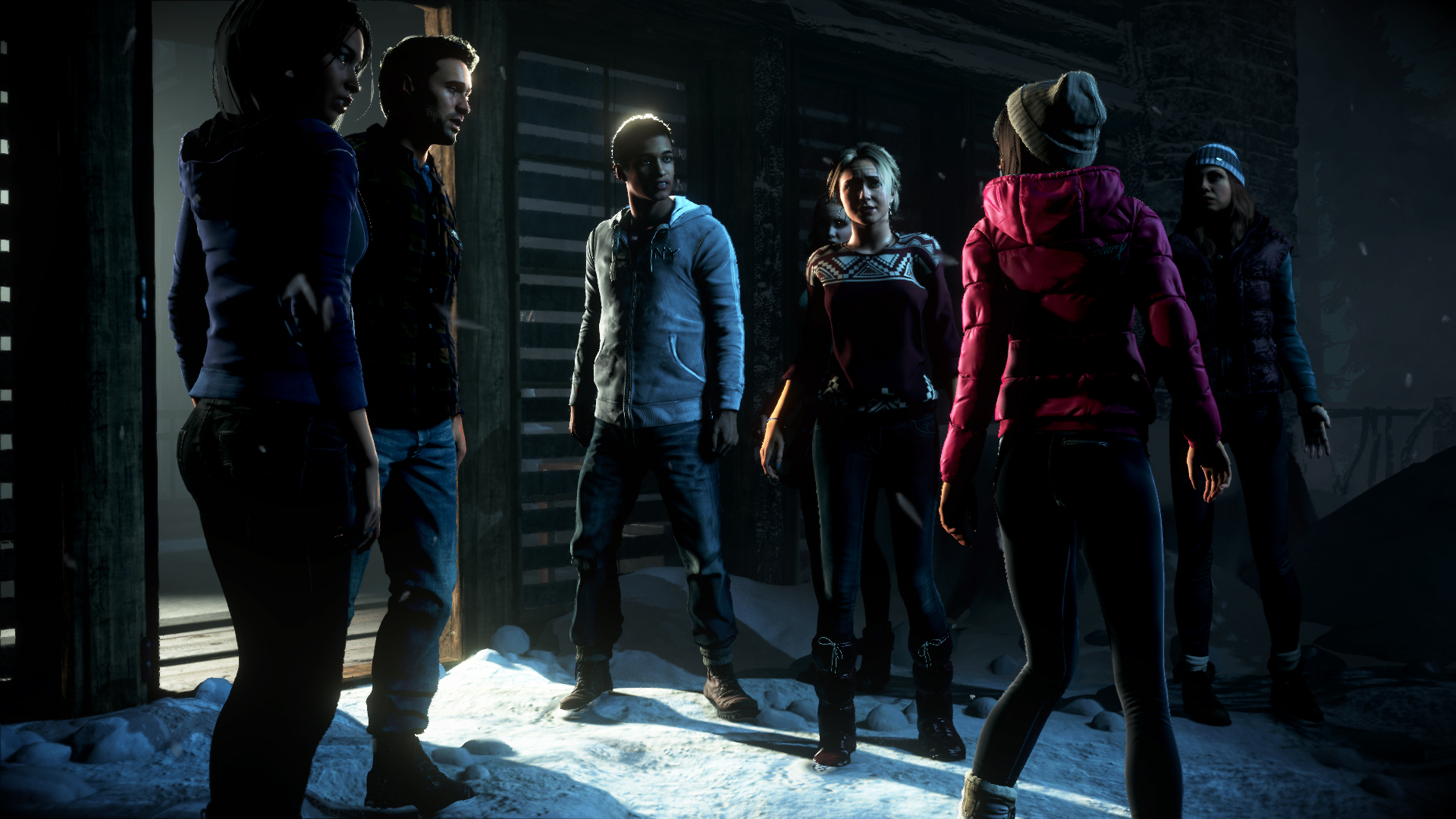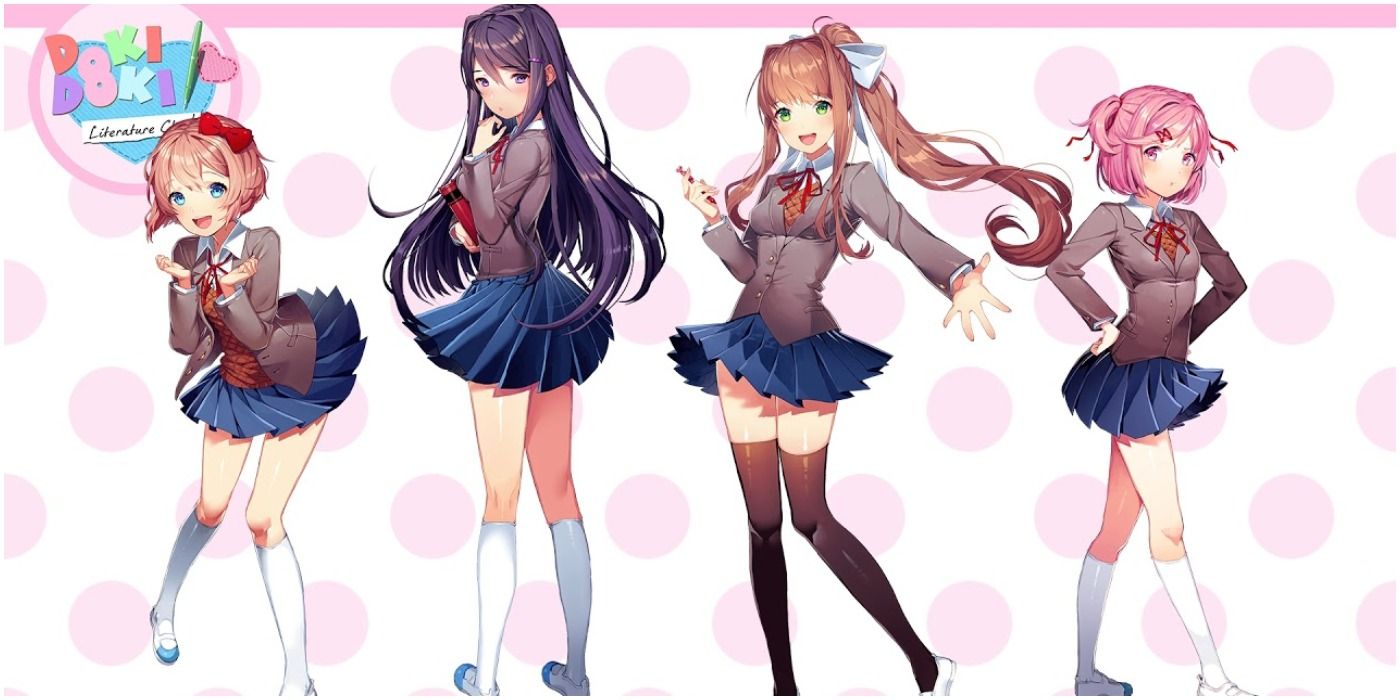Throughout our past few weeks of games, every game we have encountered has AI, with varying roles and characters. This week, with the introduction of metagames, I felt interested in NPC’s roles and how they shaped the game they were playing. NPC’s are often a driver for the game itself, creating meaning we develop from games. However, this also made me wonder, when they try to reach out to our emotions, should we feel guilty in our choices for NPCs?
Should we feel bad for NPCs? Is it wrong not to? Could we characterize what we feel for NPCs in the same group of emotions we feel for other people? I will argue both directions.
In Doki Doki Literature Club, the game centers around these four girls that we’re supposed to get to know and essentially “date”. Monika tugs at your heartstrings in a way where she simply wants attention and to be loved like the other NPCs, but wasn’t designed for that. When we see each character die, we feel bad, and the game purposely reaches out to us, the player, not the character we play as. However, these are lines of code after all, and the game points this out by forcing you to delete them from the game directly. It’s easy to dismiss them and get rid of them, and you don’t have to worry about harming them because they are not real.

Firstly, there is no way you can harm an NPCs feelings in the literal sense, since they have none. They will not jump out of the screen and accuse you of heartbreak or lying, even if you might have done that in the game. We, as players, usually treat them as people and tend to go for the option that won’t leave them behind or will save their lives (thinking of Until Dawn here). Even though we may see gruesome images, they are not real people, so why should we treat them as such? We think that people who want to kill everyone are somewhat strange unless they’re going for a certain achievement where they have to.
Of course, this majorly depends on the game you’re playing, as NPCs are designed to make you feel a certain way. For example, in GTA V, you can kill endless NPCs with no consequence and ultimately not feel bad for them. Since they play no direct role in your gameplay, the player feels a certain distance from them. Compare this to Until Dawn, where NPCs are everything. They are the story, they are the reason you can interact with the world around you, so you feel much worse when you lose a character. Either way, it is up to the player if they want to take care of the NPCs or dismiss them.

On the other hand, NPCs were curated by a human, someone else who wants you to feel a certain way. Dismissing NPCs could be seen as dismissing someone’s work or the story they tried to build. In Stardew Valley, you could follow the game’s intentions with gifts and befriending villagers, or you can treat them terribly and ignore the mechanic altogether. However, doing this leads the player to ultimately miss what the game has to offer through the plot.
NPCs, when designed to reflect humans, can also draw to our natural sensibilities to ensure each others safety. In Until Dawn, where the NPCs are based physically on real humans and have real human emotion, it is easy to empathize with them. You put yourselves in their shoes and think on what you would want others to do for you. Similarly to how we naturally bond with some people easier than others, players bond with NPCs in different ways as well. It’s why there’s so many debates over who’s the best (Monika&Monika&Monika) and worst (Emily) in games. We have favorites in video games, TV shows, movies, because of how they were curated by others. It’s only natural that we like others more than others.
It might be unfair to determine how we treat NPCs as a reflection of our human selves, however I think it is only a natural reaction to do so. NPCs are designed to imitate real life, and how far can our imitations truly be from reality? Art imitates life after all, so what is stopping us from treating how we imitate art as a reflection of how we treat life?


I couldn’t agree more on your point that
I couldn’t agree more on your point that we will feel bad for Monika while playing Doki Doki Literature Club. From my perspective, I think it is much like what we feel about the characters in a novel or fiction. We could have emotional connection with them because we have immersed ourselves in the plot the author create for us. Therefore, I probably wouldn’t characterize the emotional connection in video games as a different type from that we feel normally in a novel. However, I completely agree that the Meta approach adopted by Doki Doki does make us feel even more related.
It’s really interesting that you can consider feeling bad for the NPC to be against the creator’s intentions. Specifically in the context of emotions of players which are highly variable, if we choose to look at a game from a meta lense, unless it is a “meta-game”, then it would be against the creators intentions. Yet, if we expand this to players who really cannot relate or do not feel sadness when the creator might have intended a scene or event to make the player sad, would this be seen as a failure on the part of the creator? If the player purposefully removes themselves from these emotions, then is it a sabotaging of the game? Or does the burden still lie on the creator for even allowing the player to approach the game from an aware standpoint? It’s pretty tricky since the causes of emotions are many times unknown to the player as well.